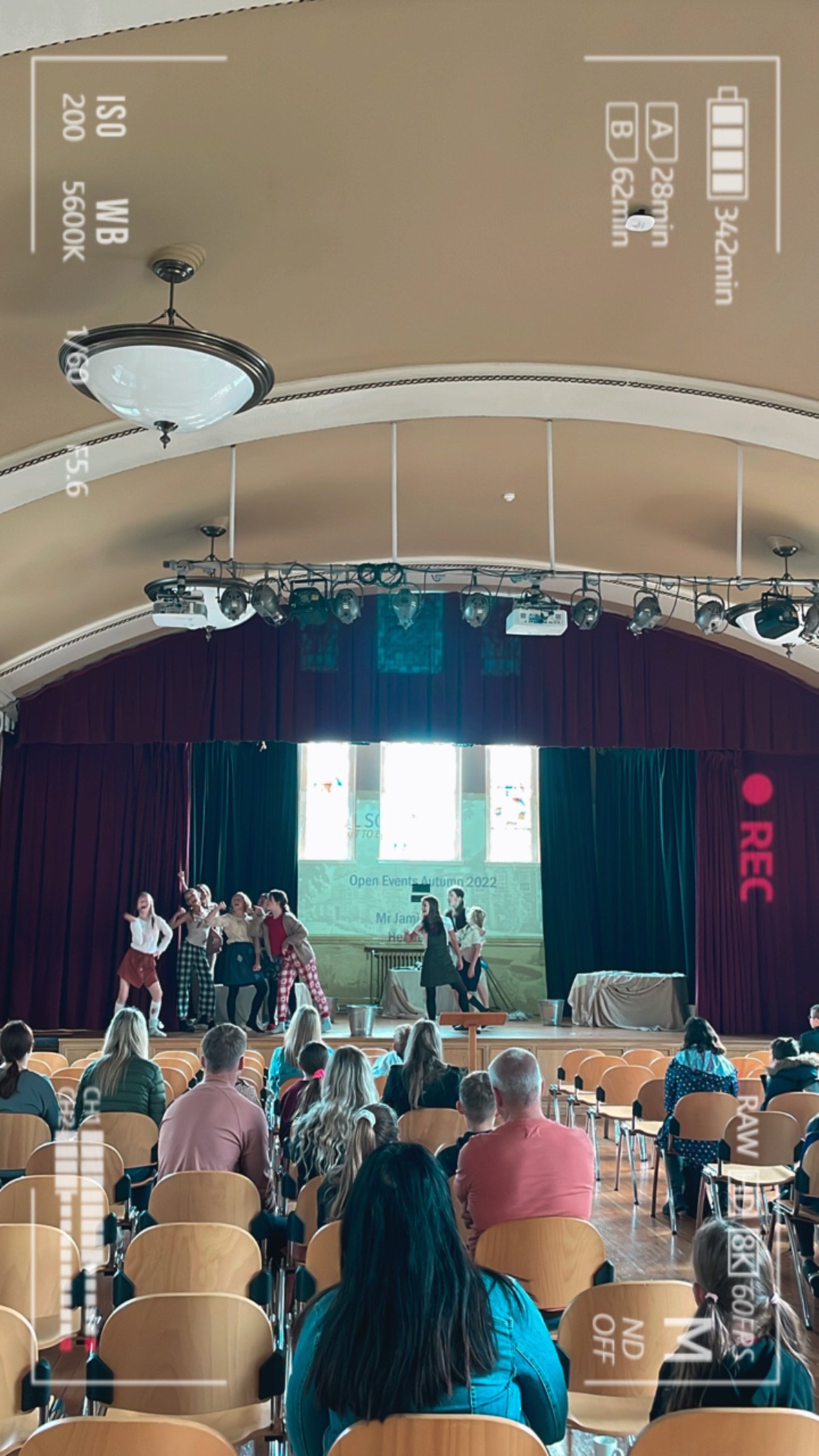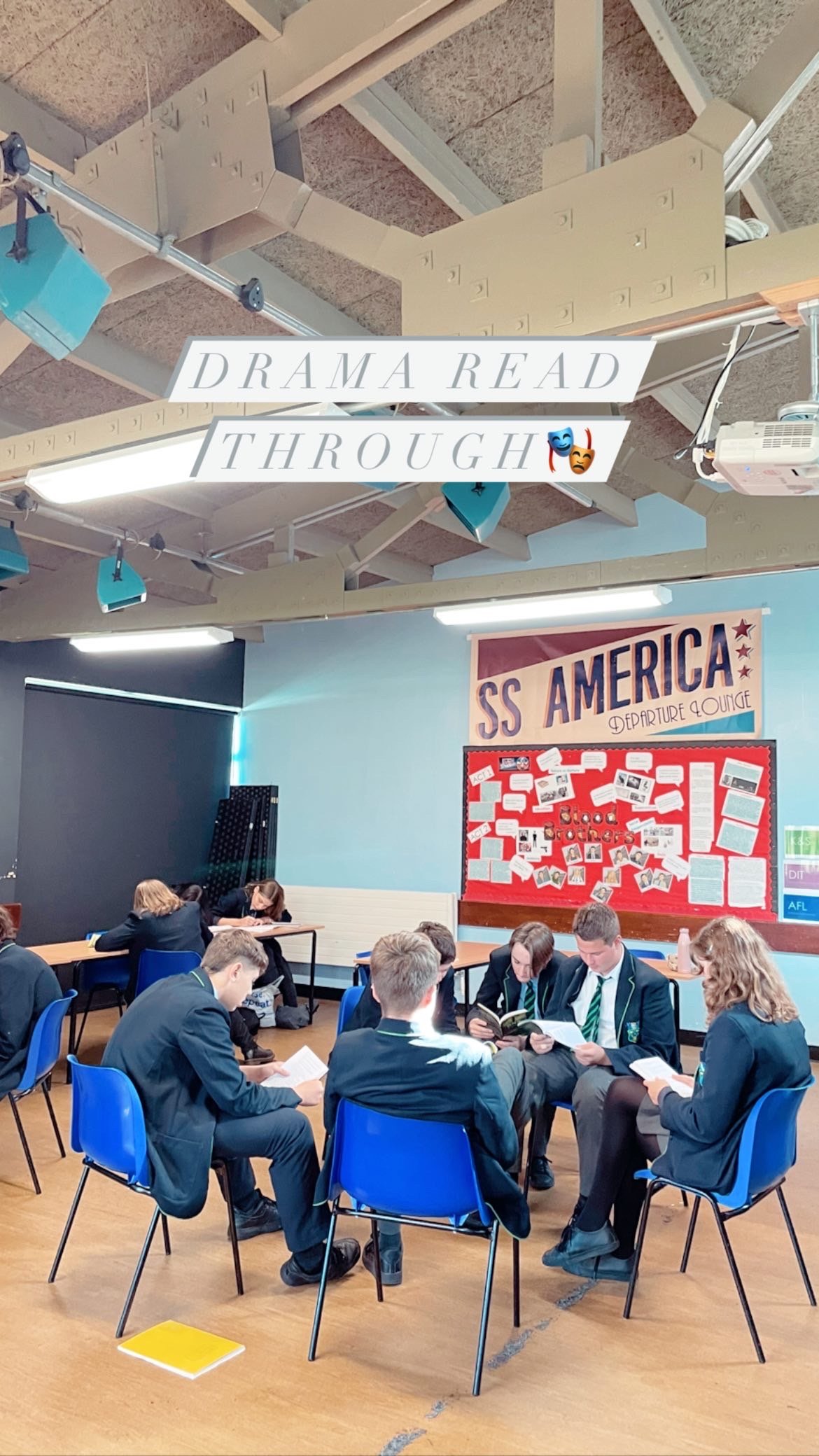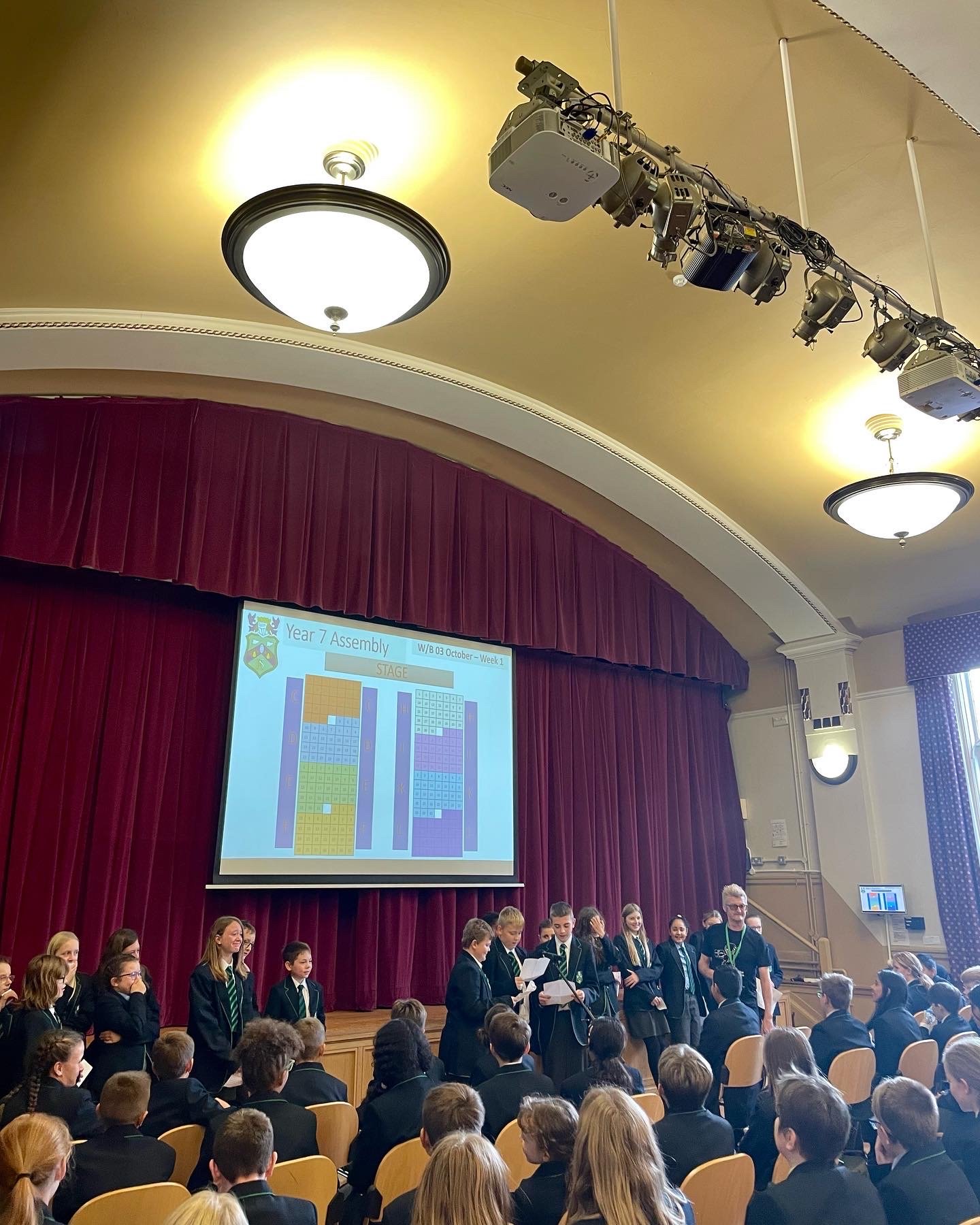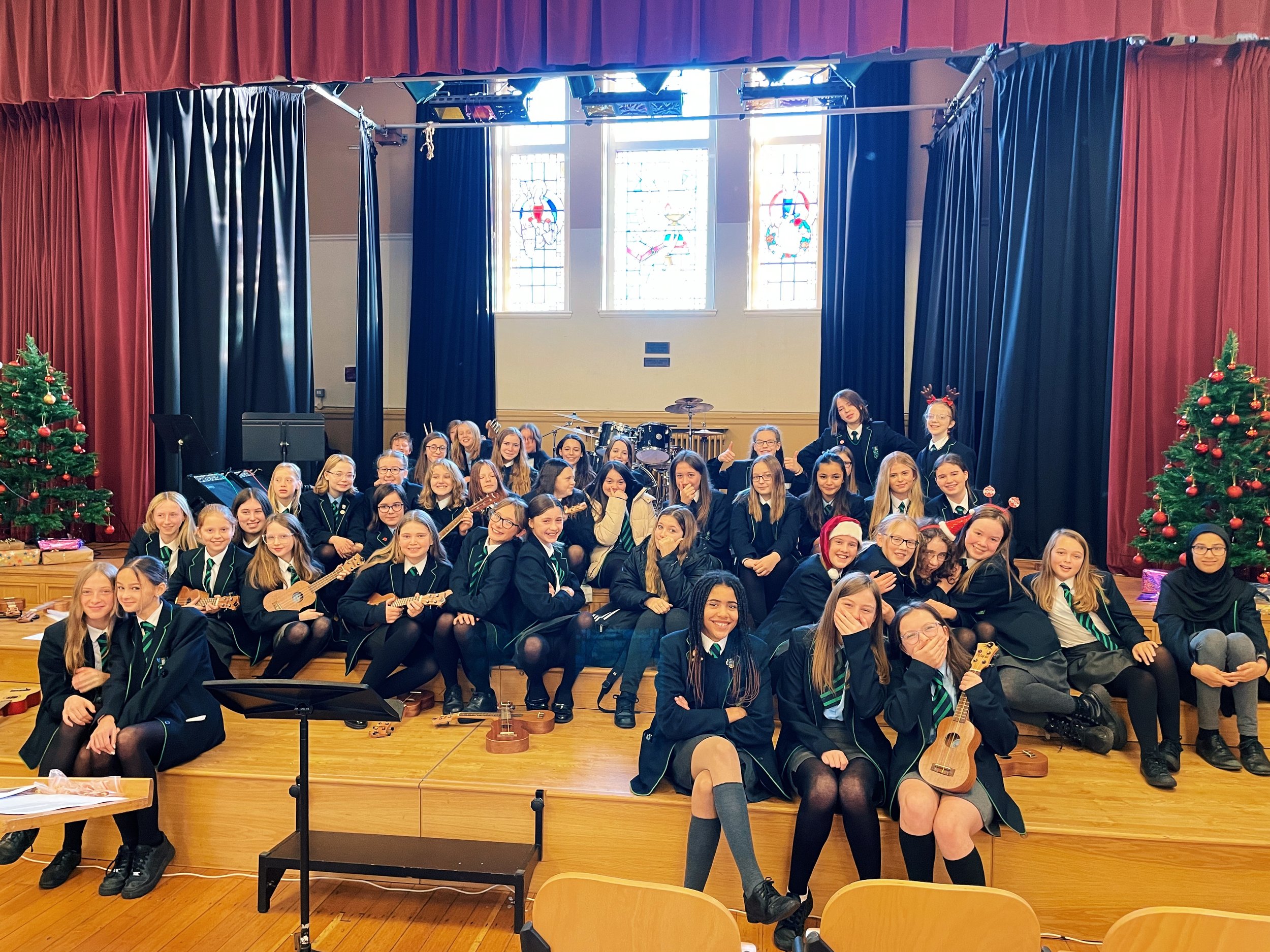drama
SUBJECT OVERVIEW
Drama at Redhill is taught once every 2 weeks at Key Stage 3, and is available as an optional GCSE subject, which students can complete in years 10 and 11. The GCSE qualification is taught over 5 hours, every 2 weeks and allows students to explore drama from the point of view of a deviser, designer, performer, and director. The course is 60% coursework, with the final 40% being awarded through a final written exam.
Drama is taught in our dedicated performance space (B1) whilst theory and small group lessons are taught in A20. All lessons are taught by Mrs Lauren Wagstaff (Subject Lead) Mrs Paige Lewis and Mrs Lauren Rowell
INTENT
Drama at Redhill school is an opportunity for students to develop confidence, the ability to work with others, communication skills, and a wealth of subject specific knowledge and techniques that they will acquire in their 5-year learning journey. We want drama to be a subject that students enjoy and express freely in. We hope to develop an appreciation for performance and a respect for their peers' ideas and opinions. These are skills which will stand them in good stead not just for drama, but for their wider school life. In addition to drama being a GCSE option subject, it is a subject that all students will have experiences of right from the beginning of Year 7.
In year 7, drama is used to help support the delivery of the English curriculum, so that all the English projects are mirrored through the content delivered in drama. This allows students to explore each text and genre in a practical way. At the end of term, all students will complete a drama assessment, focusing on drama and performance skills and the ability to work as a team to present a text or devised performance on stage.
In years 8 and 9, drama is taught as an independent subject and here we start to develop the foundation knowledge and skills needed for success. We teach three discreet projects across the academic year, with each one aiming to develop the skills of a deviser, performer, and evaluator. Each project will end with an assessment: a polished improvisation at the end of the autumn term, a performance of a text in the spring, and a small group presentation in the summer term. The curriculum is delivered mostly in a practical way, encouraging collaboration throughout.
In year 10 students complete a term of ‘skills building,’ where students look at different genres and performance styles before completing a practical assessment in a chosen genre or performance style. In the spring term they are introduced to the set text ‘Blood Brothers,' and will practice exam style questions. In the summer term, they will use all the knowledge and skills gathered throughout the year to complete their first coursework. The coursework focuses on the skills of deviser and performer and requires a performance alongside a written portfolio that captures their journey to creating performance.
In year 11, students will complete a text performance and a further piece of written coursework, documenting their intention as a performer. Students will also experience live performance, developing their skills of analysis and evaluation. Preparation for the final written exam will complete the course, revisiting the knowledge and skills gained throughout their drama GCSE study.
Drama Curriculum - Spring Term
Wider School Opportunities
The drama curriculum helps to support the development of ‘cultural capital’ within the wider school curriculum. Allowing our students to explore scenarios that they are unfamiliar, allows them to gain a greater knowledge of the world around them. That, coupled with play texts that pose moral dilemmas and teach them about society, give them a wealth of contextual knowledge and the ability to apply this to differing circumstances.
Redhill offers students the opportunity to experience live theatre, both as an audience member and a performer. Key stage 4 drama students are taken to see at least one professional theatre performance during their GCSE studies, and key stage 3 students can visit the theatre to have a backstage tour, helping to develop their appreciation of how technical aspects assist a show. GCSE students are also encouraged to showcase and celebrate their work to an invited audience of friends and relatives.
Our extra-curricular offer is dominated by the whole school musical production, that takes place each year in the summer term. Actors, dancers, singers, and designers are all welcome to lend their talents to a large-scale show, performed for the local community.
SMSC
Spiritual Moral Social and Cultural development
Spiritual development – pupils are given opportunities to form and reflect upon their own beliefs and opinions about life through the study of literature and non -literary texts. In the Drama classroom they show respect for other people’s opinions, beliefs and values. Pupils enjoy developing their individual opinions based on the texts that they are studying. We use a range of creative and imaginative ways to teach and for pupils to show their understanding.
Moral development – throughout Drama pupils explore social and cultural issues. They are encouraged to form their own opinions in response to the texts they encounter. A skill nurtured throughout Drama is the ability to analyse and reflect upon ethical issues and show an understanding of an opposing view to their own.
Social development – In the Drama classroom, pupils from diverse backgrounds work together. All pupils are willing to work together in the classroom and are cooperative. Through Drama pupils are given every opportunity to explore social and cultural changes that contribute to their own life.
Cultural development – Pupils explore multi-cultural Britain and appreciate the variety of cultures that have contributed to everyday life in Britain. Learning about the different perspectives in society allows pupils to appreciate the cultural development of others and show interest in exploring this. Pupils are taught to show respect to people from other faiths, cultural and socio-economic backgrounds locally and globally. This is explored through the playtexts we study.








